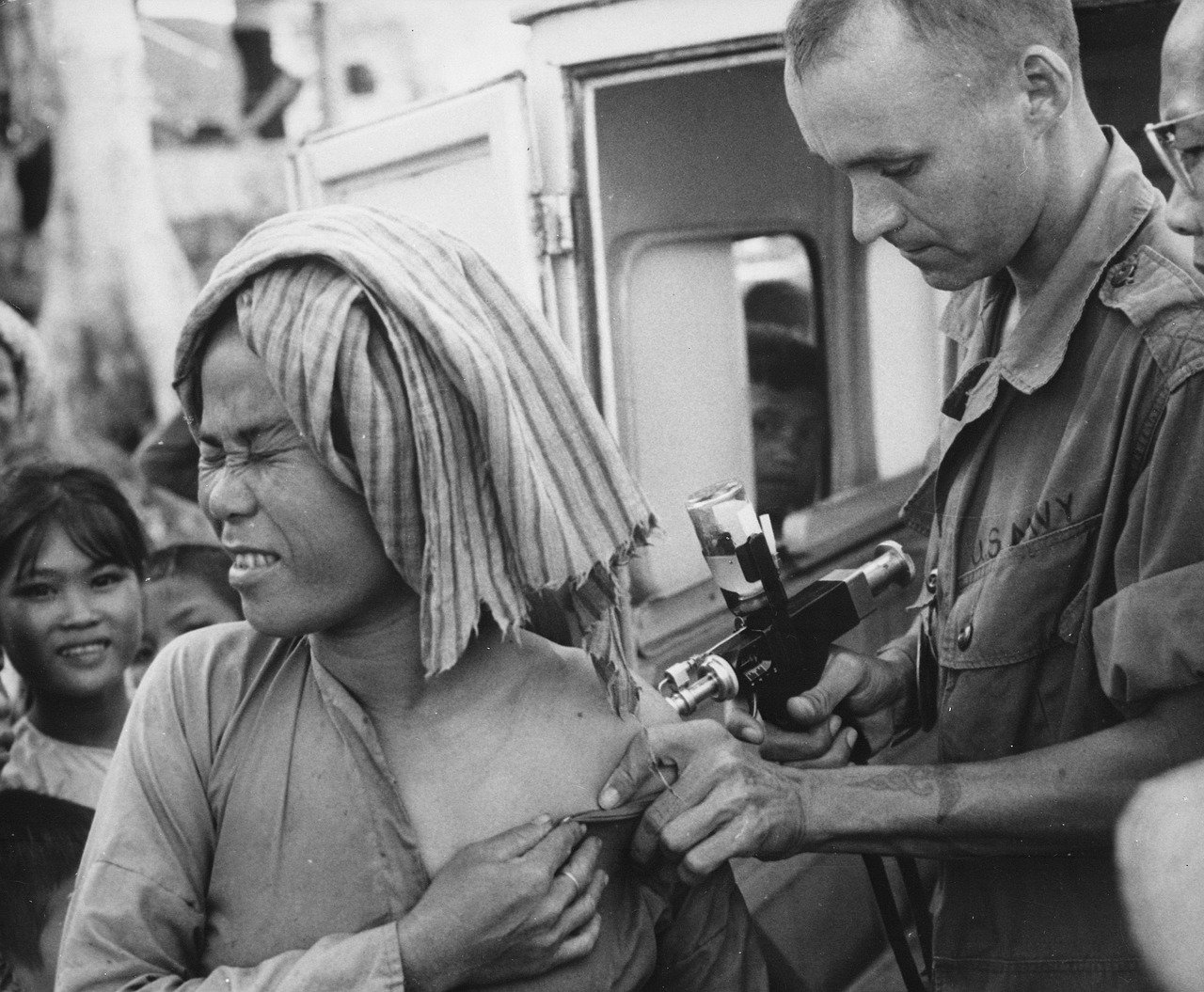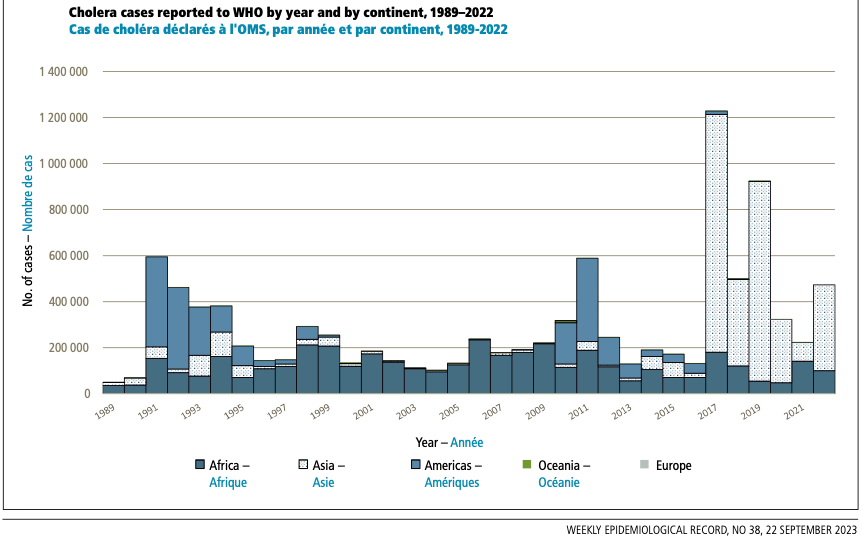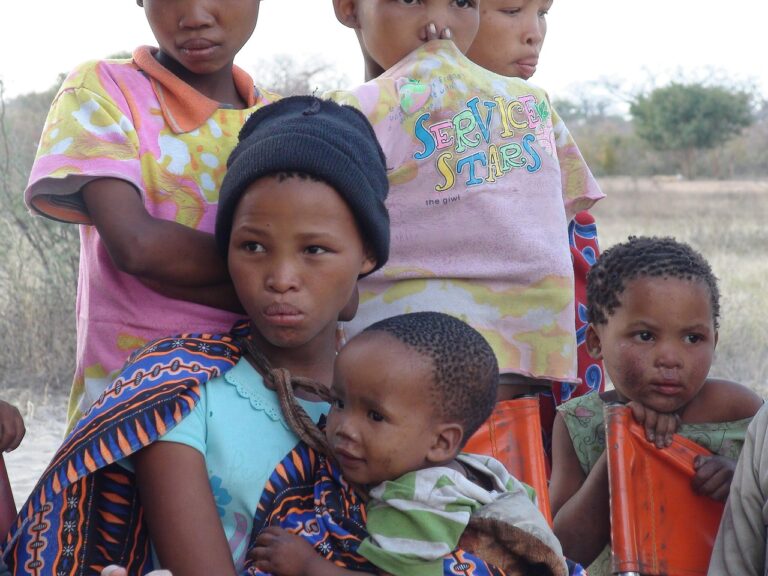
Vaccination
Geneva: New analysis confirms the world is seeing a continued global upsurge of cholera. Current data for 2023 suggest that twenty-four countries are currently reporting active outbreaks, with some countries in the midst of acute crises.
Comprehensive cholera statistics for 2022, published by the World Health Organization (WHO) today, also shed light on the scale and extent of the ongoing cholera upsurge.
While data for cholera remain inadequate, cases reported to WHO in 2022 were more than double those in 2021. Forty-four countries reported 472697 cases, a 25% increase from the 35 countries that reported cases in 2021, and 2349 deaths.
Not only were there more outbreaks, but the outbreaks were larger. The larger the outbreak, the harder it typically is to control, WHO said. The geographical pattern of outbreaks also changed, as countries that had not reported cholera in many years, including Lebanon and the Syrian Arab Republic, reported large outbreaks in 2022. Very large outbreaks, more than 10,000 suspected and confirmed cases per country, were reported by 7 countries on 2 continents (Afghanistan, Cameroon, Democratic Republic of the Congo (DRC), Malawi, Nigeria, Somalia, Syrian Arab Republic), more than double the number of very large outbreaks reported in each of the 3 previous years.
 Conflict, climate change, limited investment in development and population displacement due to emerging and re-emerging vulnerability all contributed to increasing the number of cholera outbreaks.
Conflict, climate change, limited investment in development and population displacement due to emerging and re-emerging vulnerability all contributed to increasing the number of cholera outbreaks.
The end of restrictions imposed due to coronavirus disease 2019 (COVID-19), including fewer infection prevention and control measures, and reduced funding for outbreak response has also impacted other diseases, including cholera.
Cholera is an acute intestinal infection that spreads through food and water contaminated with faeces containing the bacterium Vibrio cholerae. It is closely linked to the lack of adequate safe water and sanitation, due to underdevelopment, poverty and conflict. Climate change too is playing a role in this upsurge as extreme climate events like floods, droughts and cyclones trigger new outbreaks and worsen existing ones.
The increased demand for cholera materials has been a challenge for disease control efforts globally. Since October 2022, the International Coordinating Group (ICG)—the body which manages emergency supplies of vaccines—has suspended the standard two-dose vaccination regimen in cholera outbreak response campaigns, using instead a single-dose approach.
Long-term development, including water, sanitation and hygiene (WASH), is the long-term solution for preventing cholera. WHO said it is supporting countries to respond to cholera outbreaks on an emergency footing through the strengthening of public health surveillance, case management, and prevention measures; providing essential medical supplies; coordinating field deployments with partners; and supporting risk communication and community engagement.
WHO has appealed for US$ 160.4 million to respond to cholera through the global strategic preparedness, readiness and response plan. US$ 16.6 million has been released from the WHO Contingency Fund for Emergencies for cholera response in 2022 and 2023.
– global bihari bureau





